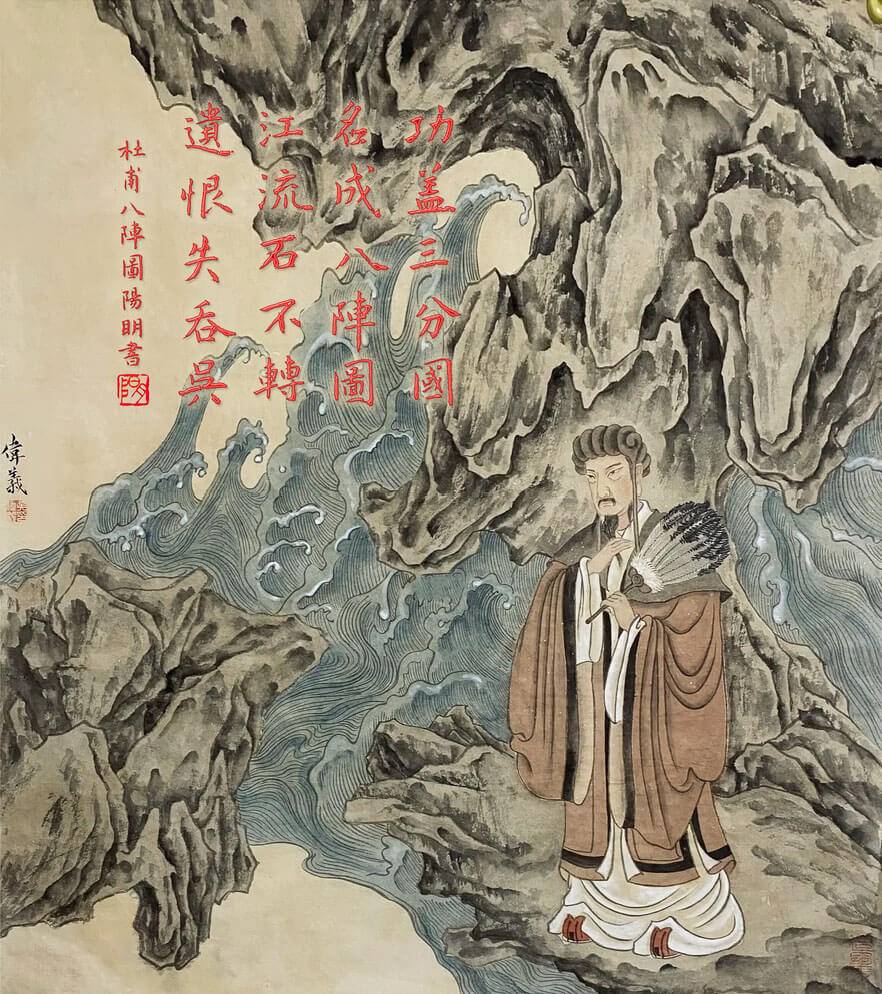The Eight-sided Fortress ( The Eightfold Battle Formation )
- Poetry of Du Fu

The Three Kingdoms, divided, have been bound by his greatness.
The Eight-Sided Fortress is founded on his fame;
Beside the changing river, it stands stony as his grief
That he never conquered the Kingdom of Wu.
Five-character-quatrain
It was written in the first year of the Dali reign of the Tang Dynasty (766).
Studded with a myriad of historical and military allusions, this poem reveres the historical figure Zhuge Liang, who was a brilliant military strategist and crucial in confronting the Three Kingdoms. In the first line of the poem, the Three Kingdoms (三分国), reference the kingdoms of Wei, Shu, and Wu, which divided China during AD 220-280. During this period, each of these three kingdoms used bloody warfare and political schemes to topple the others from their seats of power. Zhuge Liang’s achievements arose from his ability to use the confusing mazes and elemental strength of his eight elements battle formation to frighten his opponents, specifically those in Wu, into retreat. The terms 功 and 名 depict Zhuge Liang’s hard-achieved feats and the poet’s reverence for him.
Although Zhuge Liang’s achievements are immeasurable, he harbors one regret. In the last two lines of the poem, Du Fu’s tone shifts from pride to wistfulness. Using a scene provided by nature — the stones at the bottom of a river — Du Fu illustrates Zhuge Liang’s regret of not conquering the Wu Kingdom.
功盖三分国,名成八阵图。
江流石不转,遗恨失吞吴。
- Why Chinese poems is so special?
- The most distinctive features of Chinese poetry are: concision- many poems are only four lines, and few are much longer than eight; ambiguity- number, tense and parts of speech are often undetermined, creating particularly rich interpretative possibilities; and structure- most poems follow quite strict formal patterns which have beauty in themselves as well as highlighting meaningful contrasts.
- How to read a Chinese poem?
- Like an English poem, but more so. Everything is there for a reason, so try to find that reason. Think about all the possible connotations, and be aware of the different possibilities of number and tense. Look for contrasts: within lines, between the lines of each couplet and between successive couplets. Above all, don't worry about what the poet meant- find your meaning.